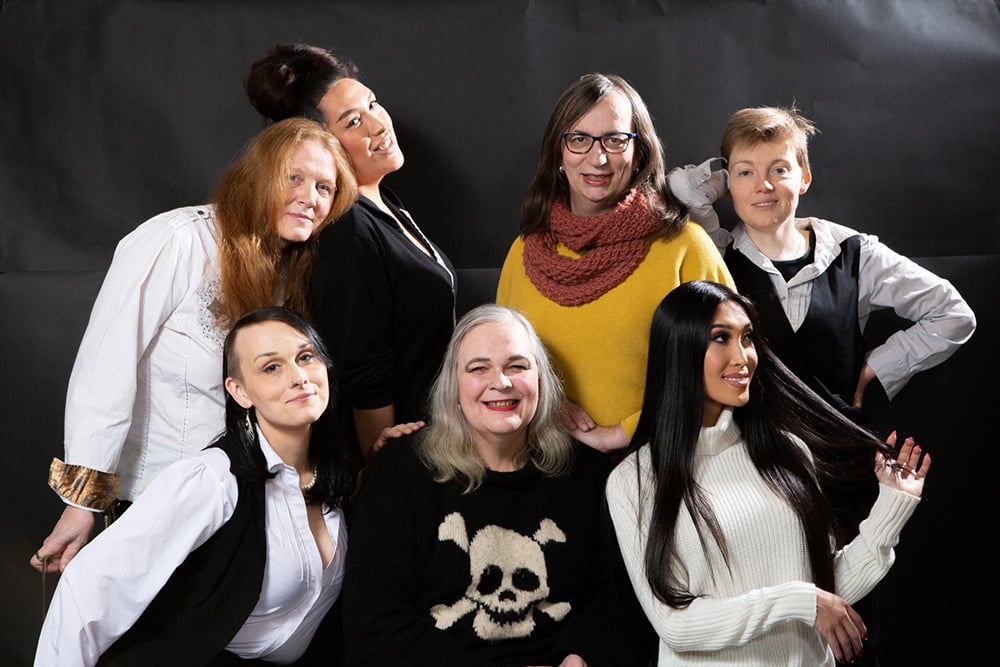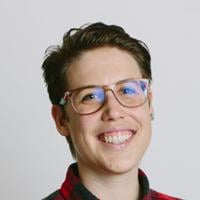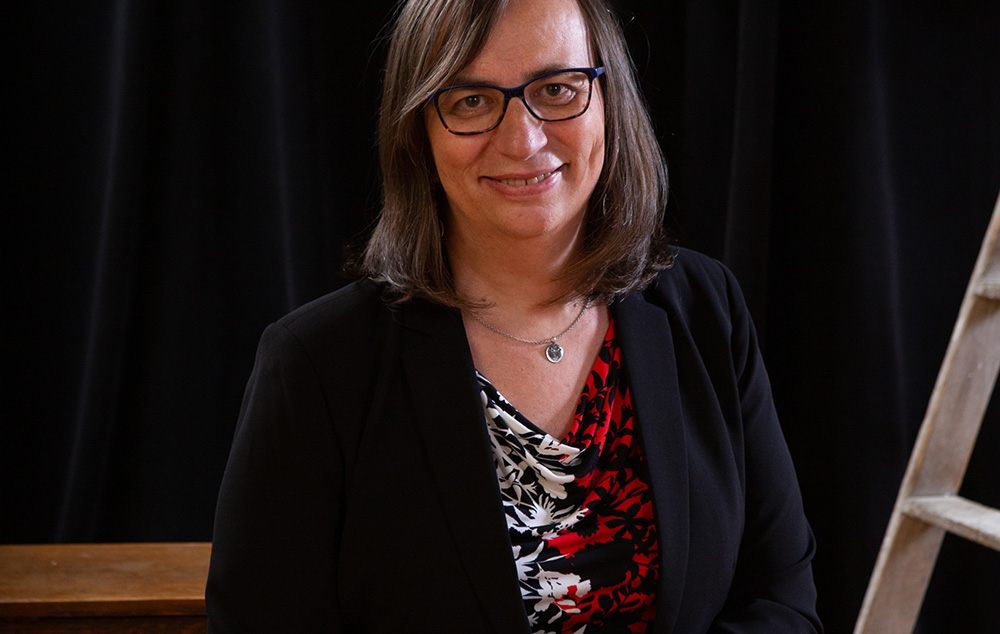Between her consulting job, public policy work and co-parenting two young children, you’d think that activist and self-described “tenacious loudmouth” Morgane Oger wouldn’t have time to perform in a play that parallels many of her own struggles as a trans woman.
But you’d be wrong.
Oger, who ran as a BC NDP candidate in 2017, is one of seven actors embodying the voices of trans women in Trans Scripts, Part I: The Women, opening Thursday at the Firehall Arts Centre in Vancouver.
Written by American playwright Paul Lucas, the text is drawn from interviews with over 70 trans women from six countries. Trans Scripts premiered at the Edinburgh Festival Fringe in 2015, winning the festival’s prestigious Fringe First Award, as well as an Amnesty International Freedom of Expression award.
The Tyee spoke to Oger during her preparation for the show. This interview has been edited for clarity and length.
The Tyee: Between your work and activism, you’ve had plenty of stage time. Can you tell us about the theatre or arts experiences that are informing your performance?
Morgane Oger: I came into Trans Scripts with no theatre experience. I did participate in a high school performance in Grade 9 in an obscure musical theatre piece called Noah’s Animals and have the requisite elementary school band experience of playing a clarinet. My previous arts interest was photography and strictly behind the lens — where I felt the safest.
My public speaking experience definitely helped me, as I am now fairly confident on stage, regardless of the context. But delivering a speech with a core message is still very different from telling an intimate story. I was really surprised at the stark contrast at first.
Performing feels far scarier and leaves me more shaken up than the speeches I have given, partly due to the deeply personal nature of theatre. The cast dives into the dark waters of defiance, rejection and trauma in this piece, and I cried often practising my lines.
Those are long strides to emerge from behind the camera and take centre stage in such a personal play. How did you hear about and connect with this production?
I was one of the original actors for the 2018 reading of Trans Scripts at the Cultch. I had [shared with my networks] that the Frank Theatre Company was looking for actors for the reading, and they ended up asking me to play Dr. Violet.
A reading is so different than a performance; we were holding the script right in our hands and we didn’t really move around very much. So although I did perform the piece twice in front of an audience before this, it wasn’t from memory. Now, I must walk, talk and chew gum — all at the same time. It is much more challenging to deliver the lines from memory while moving my body, digging to find the emotions and the motivations and interacting with six other performers. I have a whole new level of appreciation for the work that actors do.
Tell us about your character. What are the strongest connections between the two of you? What are the big differences?
Dr. Violet is very much like me, and yet at the same time very different. She uses a vocabulary that I do not agree with, but she and I share major milestones in the arcs of our transgender journeys. Dr. Violet is a specialized professional near the end of her career. I am a mechanical engineer, now specializing in enterprise tech. Like me, Dr. Violet was married and has children. She is on good terms with her parents, but the subtext of her marriage reminds me of my own.
She had a solid, but terrifyingly vulnerable career as a professional before she finally realized that if she didn’t transition, she would live the rest of her life being miserable. When she transitioned, like me, she fell off a cliff.
One of the differences between Violet and I is how we frame our experiences. She identifies as a transsexual woman, whereas I hate that word and see myself as trans. I dislike talking about myself as if I am my physiological parts. I lead with who I am rather than what I am. Violet seems to justify who she is through her transsexual characteristics like her surgical status, and this is something I categorically refuse to do. I believe very strongly that I know who I am. I know that I am a woman. I believe that my medical choices are my own, are private, and do not impact my validity as a woman.
I consciously try not to judge Violet. I am mindful that because the play is taken verbatim from interviews, every word I speak was spoken by somebody during the interview process. What Violet says is her truth and important in its own context. So although I disagree with Violet about why she is valid, I recognize she has her frame of reference. As the actor representing her, I am doing my best to honour her words.
That’s a lot to navigate both intellectually and emotionally. As an accomplished activist, how do you see the arts contributing to human rights progress?
The arts open a doorway into our souls and into our hearts by exploring moments and emotions that people encounter when facing complex situations. The stories amplified through the arts can be the very stories that justify human rights progress. They enlighten us, remind us why things matter and let us see life through another lens. The arts provide the opportunity to experience the diversity, the inclusion, the love and the dignity that all Canadians deserve to benefit from. Trans Scripts does a wonderful job showing how there is room for everyone.

As someone who is often surrounded by cis folks, what is it like to work with a cast of trans women?
I am having a wonderful time, even when I’m crying during a difficult scene that brings something awful to the surface. It is so meaningful and cathartic to be part of this cast of trans women in a show that speaks to our experiences.
We are from vastly different backgrounds, each one of us in a different place in our lives, and we are at a different place in our experience of living as trans women. It has been a very real gift to me to see that despite all our differences we have so much in common with one another and with the women who told their stories. I see so much of myself in the experiences of the characters, and it is a pleasure to share that discovery with six other trans women.
There are many, many transgender women and other gender-diverse people in our country who live relatively isolated lives away and really know only one or two people who are trans like them. Diving so deep into transgender lives in the process we are going through has been downright magical considering what life was like for me before I transitioned not so long ago, and what life was like in Canada for trans women just a decade ago.
There has been tremendous progress and education led by trans activists, yourself included. It’s a good reminder of how activism can influence the arts. Is there anything else you want people to know about this production?
When I entered into the adventure of preparing for this performance, I imagined it as a relief valve from human rights activism and politics. Boy, was I wrong! The experiences of each character in Trans Scripts cut very close to home. I know these are real stories from real women, and I know my own stories. Of course, the subject matter is raw and emotional for me.
I am stepping through my fears in this play, and some of the work turned out to be difficult. In politics and activism, I am very careful to manage my emotions. I am very careful not to dig too deep into myself because falling apart over an issue is a sin when you are already perceived to be so different. In theatre, the opposite is true. Allowing myself to be triggered by my work is a new experience, and it feels very meaningful to me.
The Frank Theatre and Zee Zee Theatre production of Trans Scripts, Part I: The Women, runs from March 12 to 21 at the Firehall Arts Centre in Vancouver. Learn more here. ![]()
Read more: Gender + Sexuality, Media
















Tyee Commenting Guidelines
Comments that violate guidelines risk being deleted, and violations may result in a temporary or permanent user ban. Maintain the spirit of good conversation to stay in the discussion.
*Please note The Tyee is not a forum for spreading misinformation about COVID-19, denying its existence or minimizing its risk to public health.
Do:
Do not: